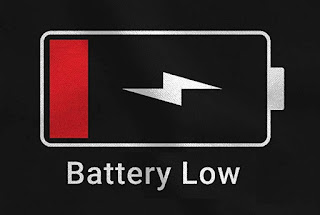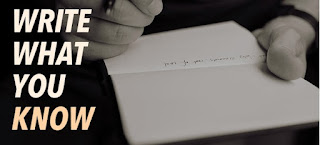This has been a particularly busy week for me. According to my FitBit, since Sunday I have put in about 125,000 steps, which equates to approximately sixty miles of walking. I think it's quite obvious that I didn't give up distance-walking for Lent. Now, when I mention these big numbers, a lot of people give me that look that lands somewhere between "What possible reason could you have to do that to yourself?" and "Are you freaking nuts?" They make a good point. However, I make a better point.
During this particular week (and during one week every month) I do a lot of walking as part of work that I do, in part, to stay fit. At my age, this kind of thing is important, but it's something worth looking into at any age. The scary part, however, is when I put all the numbers together and show it to people who normally don't do what I do but still want to stay in shape. It looks scary to them - all those steps, all those miles - and it can be intimidating. Truth be told, it's easier than it looks once you get into the habit.And yes, that's where this is all leading - getting into the habit. The magical thing about developing a positive habit is that it can make the amazing appear normal. Take writing as an example. When I was in college, writing a five-page paper felt like a task, and it was. Why? I didn't ordinarily write that much. I was a statistics major - that's supposed to be a free pass from all that writing. Well, the joke was on me - I chose the only math-based major that required a twenty-page undergraduate thesis - but that's another story. The problem was, I had five- and ten-page papers showing up now and then, which could be 2,000 words or more! Indeed, it was a struggle.
However, as life went on, I started developing a taste for writing. Professionally I wrote a lot of reports, which developed certain writer's muscles. Then came professional commentaries, which could have creative flavor. After that came writing presentations, speeches, and so on. Before I knew it, I could read a headline at 9:30 a.m. and snap out a 900-word commentary about that topic before lunch. Words just poured out of me, because writing was just as much a habit as anything else. One month, I took inventory of all the things I had written and realized I had created just over 37,000 words of polished, edited commentary and research. That's basically half a novel (granted, a boring novel, but that's not the point). Looking at the numbers that way, I couldn't believe there was a time I worried about a 1,000-word paper.
When it comes to writing a novel (my latest is a trim 98,000 words) or any major work, don't look at the big picture all at once and how many words you need to generate or you are setting yourself up to fail. First, develop the habit of writing, of creating things on a regular basis, and letting your skills build up. Then start writing whatever project you want to do. Just don't think of it as a big thing. Think of it as that thing you want to create, and let the numbers takes care of themselves. After you put that last word in place, then it's time to look back and think about just how much you created and how amazing you have become.
And, of course, once you tell your friends, you can sit back and enjoy their baffled expressions that seem to say, "Are you freaking nuts?"







